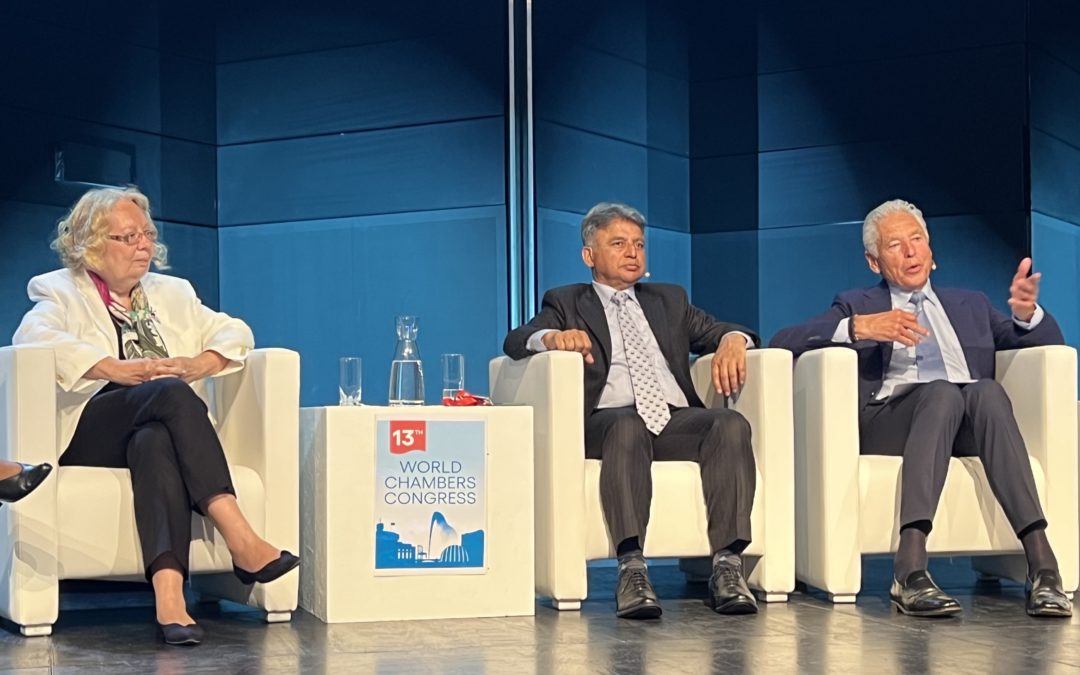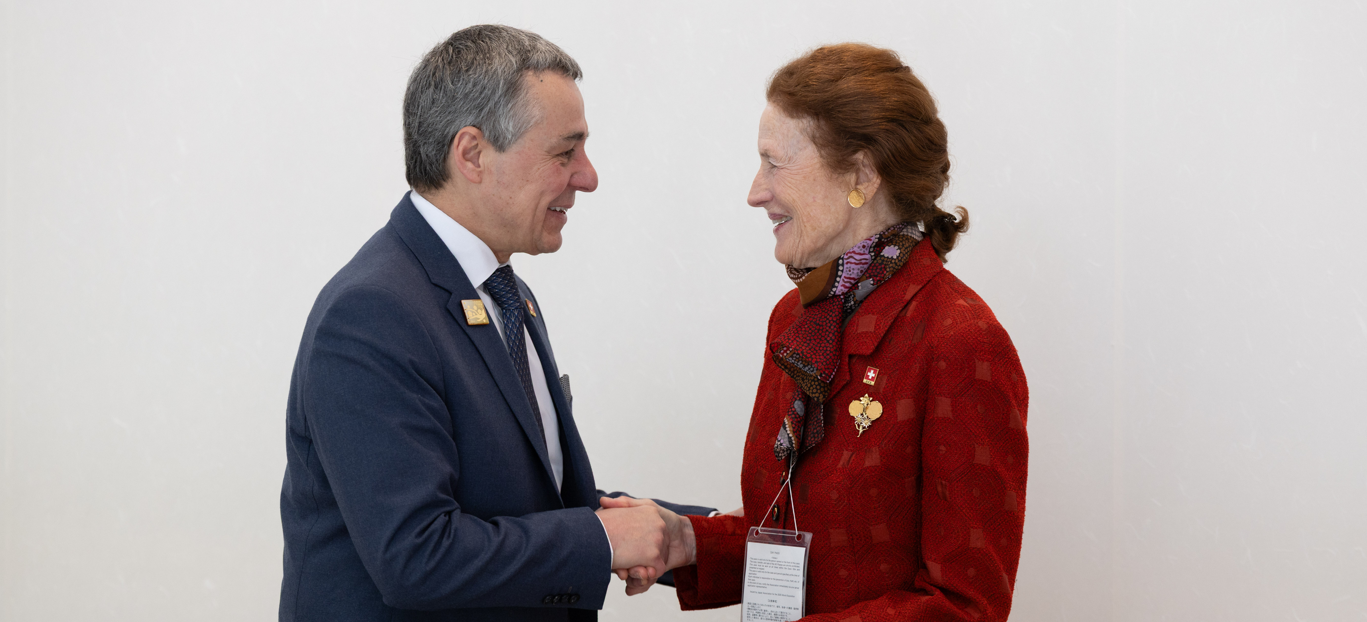GESDA President Peter Brabeck-Letmathe, right, speaks on a panel that included Tatiana Valovaya, Director General of the United Nations Office at Geneva, left, and Shailesh Pathak, Secretary General of the Federation of Indian Chambers of Commerce and Industry, center.
Anticipation is essential to accomplish a renewed and inclusive multilateralism, Peter Brabeck-Letmathe advises experts at the 13th World Chambers Congress
The benefits of multilateralism, particularly to facilitate international trade, were foremost on the minds of some 1,000 participants in the world’s largest economic forum for chambers and businesses, which gathered in Geneva to meet from Wednesday to Friday.
Geneva Science and Diplomacy Anticipator’s President Peter Brabeck-Letmathe was invited to speak on a panel entitled “Chambers and business: 21st century merchants of peace,” featuring Tatiana Valovaya, Director General of the United Nations Office at Geneva (UNOG); Pamela Coke-Hamilton, Executive Director of the International Trade Center (ITC), and Shailesh Pathak, Secretary General of the Federation of Indian Chambers of Commerce and Industry (FICCI).
Peter Brabeck-Letmathe used his address as a strong appeal for more anticipation, which he views as a critical way forward to make multilateralism more effective.
All of the participants agreed that multilateralism urgently needs to be renewed, starting with Tatiana Valovaya, who recalled the introduction of multilateralism in Geneva more than a century ago and argued for a 21st century update. This view was shared by Peter Brabeck-Letmathe, who insisted that today’s multilateralism cannot in any way be exclusive.
“Multilateralism has nothing to gain by boycotting Russian artists or scientists,” he said.
Peter Brabeck-Letmathe also called for a system of global governance that gives pride of place to anticipation. As an example, he pointed to the debate stirring public opinion about artificial intelligence in general and ChatGPT in particular. Just half a year ago there were far fewer worrying headlines in this field.
“Everyone is running after this technological development, wanting to regulate it or even ban it,” he said. “And it’s all happening in the most disorderly fashion. What GESDA is proposing is precisely that we avoid this kind of debate in a hurry – and that we anticipate major technological developments.”
GESDA and the scientists who work for the foundation monitor the innovations taking place in laboratories around the world, and ask what impact these technological breakthroughs will have in 5, 10 and 25 years’ time.
The results are then communicated to diplomats, who are asked to create the best possible framework so that these innovations can be implemented and will benefit as many people as possible.
“If you ask me what multilateralism needs most to renew itself, my answer is: anticipation!” he summed up.










